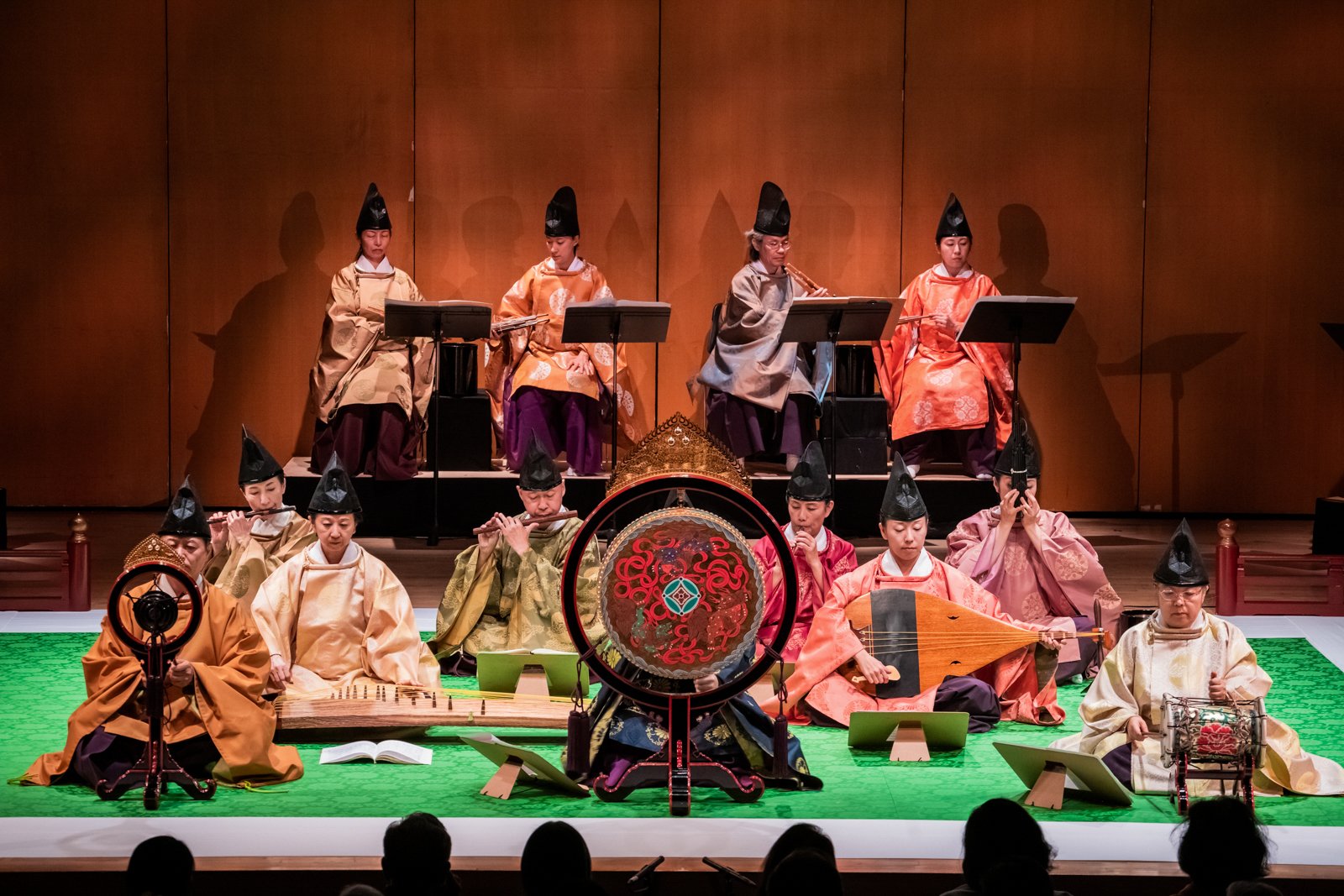Japanese music, with its rich history and diverse genres, has made a significant impact on the global music scene. From traditional sounds to contemporary hits, Japan’s musical contributions resonate worldwide, influencing various aspects of global music and culture. This article explores the ways in which Japanese music has shaped and enriched the international music landscape.
Traditional Japanese Music’s Global Appeal
The Allure of Gagaku and Noh
Traditional Japanese music, such as Gagaku and Noh, has intrigued global audiences with its unique sounds and historical significance. Gagaku, the ancient court music of Japan, offers a meditative and ethereal quality that has been appreciated in international classical and world music circles. Its use of traditional instruments, like the sho (a mouth organ) and the hichiriki (a double-reed flute), creates a distinctive sound that has captivated listeners and performers outside Japan.
Noh music, integral to Noh theater, also draws international interest. Its blend of chanting and instrumental music provides a glimpse into Japan’s cultural heritage, attracting scholars and enthusiasts who appreciate its subtle, yet profound, aesthetic.
The Rise of J-Pop and Its International Impact
J-Pop’s Global Popularity
The rise of J-Pop (Japanese pop music) in the late 20th century marked a significant moment in Japan’s global musical influence. Artists like Kyōko Koizumi and Kyu Sakamoto introduced Japanese pop music to international audiences. Kyu Sakamoto’s Sukiyaki became a worldwide hit, demonstrating the potential for Japanese pop to cross cultural boundaries.
In the 1990s and 2000s, artists such as Hikaru Utada and Namie Amuro further popularized J-Pop on the global stage. Their music, blending traditional Japanese sounds with contemporary styles, reached audiences beyond Japan, contributing to the genre’s international recognition.
Anime Music’s Global Reach
Anime music (anisong) has become a prominent part of global pop culture, with themes from Japanese anime series and films gaining widespread popularity. Composers like Yoko Kanno and Joe Hisaishi have created iconic soundtracks that resonate with fans around the world. Their music, often characterized by its emotional depth and diverse arrangements, has found a dedicated international audience.
The Influence of Japanese Rock and Metal
Japanese Rock Bands Making Waves
Japanese rock and metal bands have also left their mark on the global music scene. Bands like X Japan and Dir En Grey have garnered international acclaim for their powerful performances and innovative sound. X Japan, known for their dramatic and theatrical style, has influenced many Western rock and metal musicians, while Dir En Grey’s genre-blending approach has earned them a significant global following.
The Phenomenon of Babymetal
Babymetal represents a unique fusion of J-Pop and heavy metal, combining catchy pop melodies with intense metal instrumentation. Their distinct sound and energetic performances have captured the attention of fans worldwide, showcasing Japan’s ability to innovate within and blend different musical genres. Babymetal’s international success highlights Japan’s growing influence in the global metal scene.
Explore Unique Rewards in Online Gaming
As MoosicLab continues to push boundaries in sound innovation and creative expression, it’s inspiring to see parallel innovations in other entertainment spaces. One standout example is the variety of promotions available to players in the online casino world. For those interested in exciting bonuses, the crazyevagas casino bonus offers a compelling experience packed with value and entertainment. Whether you’re composing tracks or exploring games, creativity knows no bounds.
Electronic and Experimental Music Innovations
Pushing Boundaries with Electronic Music
Japanese electronic and experimental music artists have made significant contributions to the global music landscape. Ryuichi Sakamoto, known for his work in electronic and ambient music, has influenced international artists with his innovative use of technology and sound. His collaborations with global musicians and his role in shaping electronic music highlight Japan’s impact on this genre.
The Global Reach of Cornelius
Cornelius, a leading figure in Japanese electronic music, has gained international recognition for his eclectic and experimental approach. His work, characterized by intricate production and genre-blending, has resonated with global audiences and has contributed to Japan’s reputation as a hub for cutting-edge music.

Cross-Cultural Collaborations and Global Influence
Collaborations with International Artists
Japanese musicians frequently collaborate with international artists, further expanding their global influence. These collaborations blend different musical styles and traditions, creating unique and innovative sounds. Such cross-cultural exchanges foster a dynamic musical environment and highlight Japan’s role in the global music industry.
Japan’s Music Festivals and Global Impact
Japan’s music festivals, such as Summer Sonic and Fuji Rock Festival, attract international artists and audiences. These events showcase a diverse range of music, from traditional Japanese performances to contemporary global acts. The presence of international artists and the participation of global audiences demonstrate Japan’s significant role in the global music scene.
Conclusion
Japanese music has had a profound and lasting impact on the global music landscape. From traditional sounds like Gagaku and Noh to modern genres such as J-Pop and electronic music, Japan’s musical contributions continue to influence and inspire. Through international collaborations and innovative genres, Japanese music enriches the global cultural fabric and highlights the country’s creative and artistic prowess.









